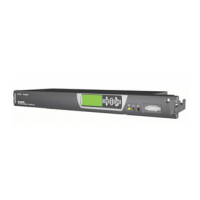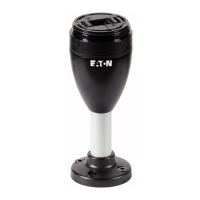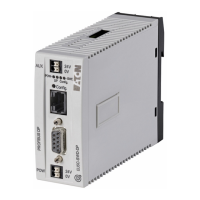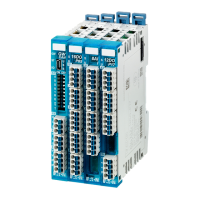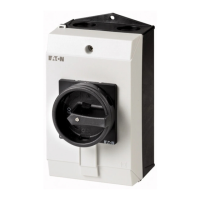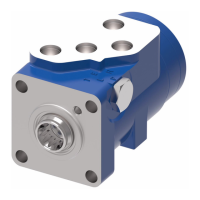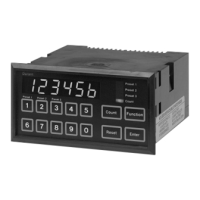SC200 Handbook
Copyright © 2007-2011 Eaton Corporation. All Rights Reserved.
IPN 997-00012-50H November 2011
Set to Eaton or X.733 as appropriate .
"Eaton" format uses different trap numbers according
to the alarm source. X.733 format uses a single trap
number for all alarm sources.
Enable Generic Traps, Trap
Repeat and Trap Repeat
Rate
Configure as appropriate.
4 For each SNMP trap receiver (up to 8) , configure the following parameters.
Type the name of the SNMP trap receiver (20 bytes maximum).
This allows 20 ASCII characters, but less for languages with multi-byte
characters.
SNMP Trap Level – controls reporting of specific events for each receiver:
Select All Alarms And Warnings to receive Critical, Major and Minor
alarms, and Warnings. (Typically Warnings are status messages such
as Equalize Active.)
Select Minor And Above to receive Critical, Major and Minor alarms.
Select Major And Above to receive only Critical and Major alarms.
Select Critical Only to receive only Critical alarms.
Select Disabled to disable notifications to the receiver.
To prevent an SNMP Trap for an individual alarm, set Send Trap to False
in the alarm's configuration.
IP address of the trap receiver assigned by the network administrator.
The default setting is 162. Do not change this setting, unless requested by
the network administrator.
A form of password. Use public, unless the network administrator has
assigned a new password.
Select:
Normal Traps for sending traps to any network management system,
except PowerManagerII
Acknowledged Summary Trap for sending traps to PowerManagerII
only
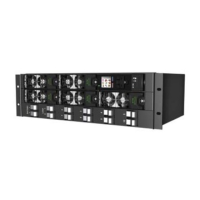
